
Sep 22 2020.
views 863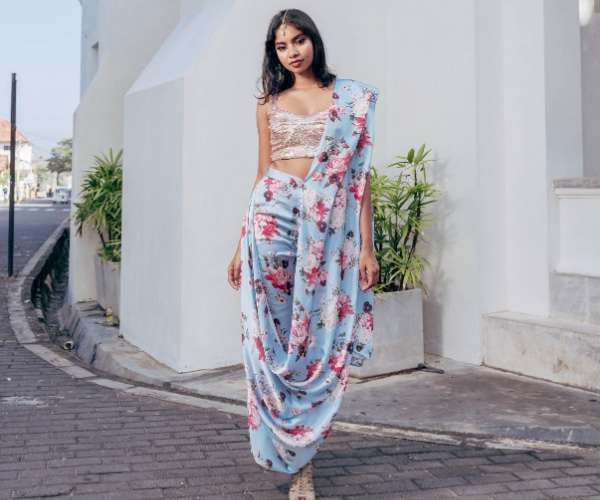
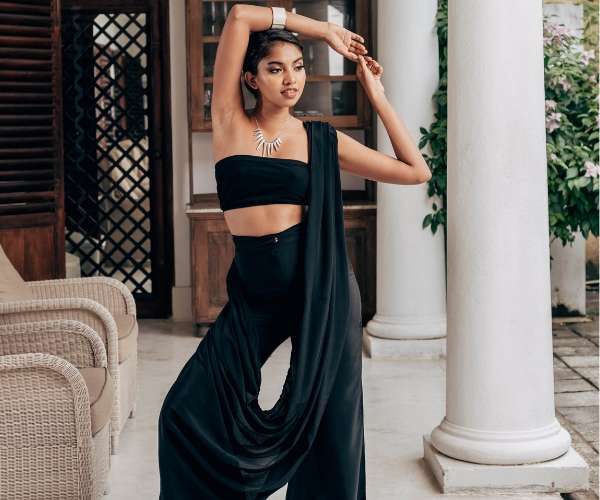
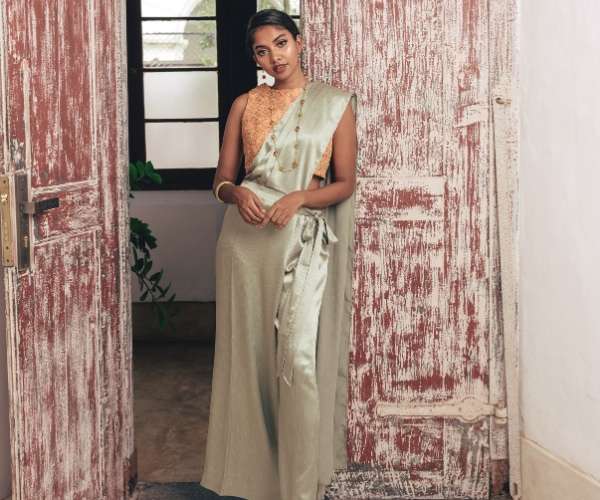
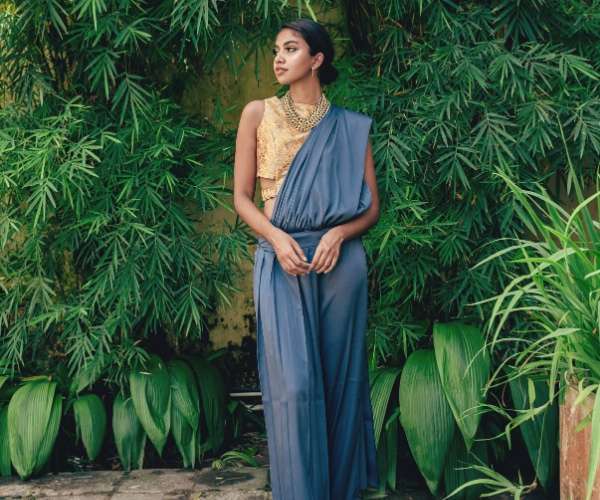


Hailing from a family which has worked in the apparel industry since the time she was a child, Charuni has spent most of her life in Bangladesh, Sri Lanka and Australia. A graduate from Monash University’s School of Commerce, Charuni arrived in Sri Lanka three years ago and since then has been working in the apparel industry. With no qualification in fashion, Charuni took up the challenge to learn as much as she can and has launched a few small brands for local fashion retailers.
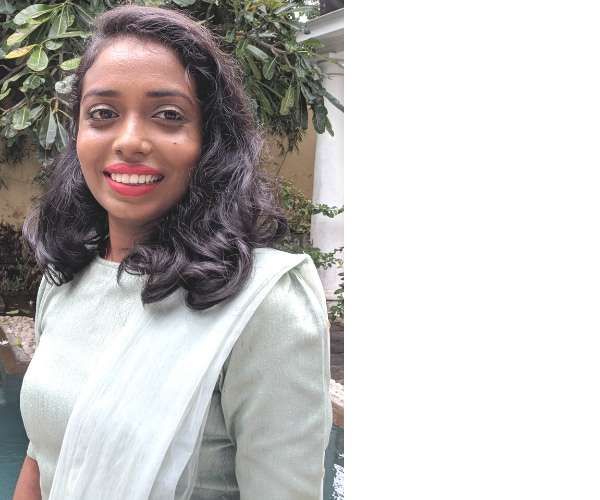
What inspired the pieces you created?
My inspiration was functionality. Sarees have always been a challenge for me. Don’t get me wrong, they’re stunning, and I felt special whenever I wore one, and I appreciated the storied tradition that this garment encapsulated from our culture.
However, sarees were also an inconvenience whenever I had to wear one for special events. Needed help draping it, had troubles driving in it, don’t even get me started on rationing bathroom breaks. Think about all the women that have to iron and layout their sarees the night before they go to work, I didn’t think that it was fair that there wasn’t an alternative or a loophole that allowed them to wear something comfortable and easy, whilst conforming to their place of work’s dress code.
It also doesn’t hurt that you don’t have to think twice before jumping onto the dance floor for that song that just calls to you without having flashbacks to that ONE TIME you face-planted at your second cousin’s second wedding when your saree pallu got stepped on during the Macarena.
Who is your muse?
Shubhika Davda. Founder of “Papa don’t preach by Shubhika”. She’s a boss babe.
What is your design ethos?
Moving forward, without forgetting where we come from. It’s about reclaiming our traditional narratives of style by repositioning it in a context that allows us to exist in workplaces and social environments without having to sacrifice, convenience, comfort, time, and aesthetic.
What are your sustainability credentials?
Our goals are simple; employ single mothers, with skill-based careers that remunerate them at a premium, allowing the fostering of economic development to best place their children in positions that they would have never hoped for themselves. We hope to encourage more women to engage in the slow fashion movement by allowing for them to mix and match tops and bottoms and thereby reuse notsarees without feeling like their ensemble has been “seen before”.
How has your feminine identity been portrayed through this collection?
It’s in the name notsaree. We’re unapologetic for rising up, and taking back what’s ours. It’s time that we stand up to the patriarchy, it’s time we wear the pants.
0 Comments